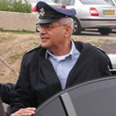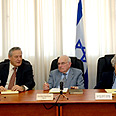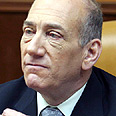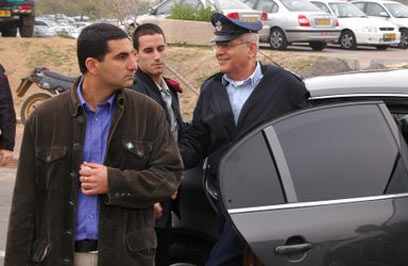


A decisive week for the Winograd Committee: The testimony of outgoing Army Chief Dan Halutz on Sunday morning opened the last, and most significant week of testimonies before the committee investigating the failures of the second Lebanon war.
Halutz's testimony was expected to focus on the different moves he recommended to the political echelon following the kidnapping of two Israel Defense Forces soldiers in northern Israel. Halutz was to elaborate on the different alternatives presented to the defense minister during the hours after the abduction.
Halutz was expected to tell the committee that the army recommended launching a wide-scale operation in the northern border, but not a war. The committee members were expected to ask Halutz about the early stages of the war and why the preparations for a ground operation were delayed.
The failure to reduce the number of rockets fired at Israel during the war was also expected to be discussed.

Halutz arrives to deliver testimony (Photo: Niv Calderon)
Later in the week, the committee members will meet with Prime Minister Ehud Olmert and former Northern Command chief, Maj. Gen. Udi Adam.
The committee will also submit a response to the High Court explaining why its deliberations were not open to the public, and why the meetings' protocols remained unpublished.
It is believed that following the prime minister's testimony Thursday, the committee will summon several witnesses for an additional testimony.
Once all the witnesses have been questioned, the committee will decide on the format of publication of its interim report, which is expected to be submitted by the end of the month.
Hanan Greenberg contributed to the report















